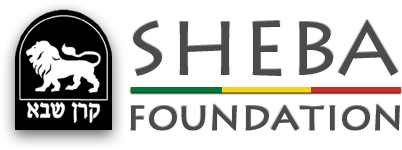Welcome to
the Sheba Foundation!

The Sheba Foundation (Project Sheba) is a non-profit organization in Israel supporting the Ethiopian Jewish community of Israel.
Projects include:
- Educational seminars
- Children's school scholarships
- Vocational training scholarships
- Home tutoring/educational intervention for children
- Language acquisition classes - Hebrew and English
- Humanitarian aid and counsel to needy families
The history of the Ethiopian Jews is a unique story of survival and rescue which is unprecedented in history. The story covers more than 2,000 years, with the final discovery of the “lost tribe”, deep in the northern hills of Ethiopia. After two major waves of immigration to Israel in 1984 and 1991, followed by ongoing aliyah (immigration), there are now over 135,000 Ethiopian Jewish citizens in Israel.
Their story in the Land of Promise has been one of struggle to assimilate into modern Israeli society. There are an increasing number of success stories, but many families still live in small, overcrowded conditions with a high level of unemployment or low paying jobs.
The Sheba Foundation recognizes the current needs of the community in Israel, and reaches out with love and practical assistance to those in need. As a non-profit oganization, the Sheba Foundation relies on the donations of individuals and groups from around the world to run projects and support the community.
You too can add your support and make a difference. Contact us, and the Sheba Foundation will link you to our projects among the Ethiopian Jews in Israel.
